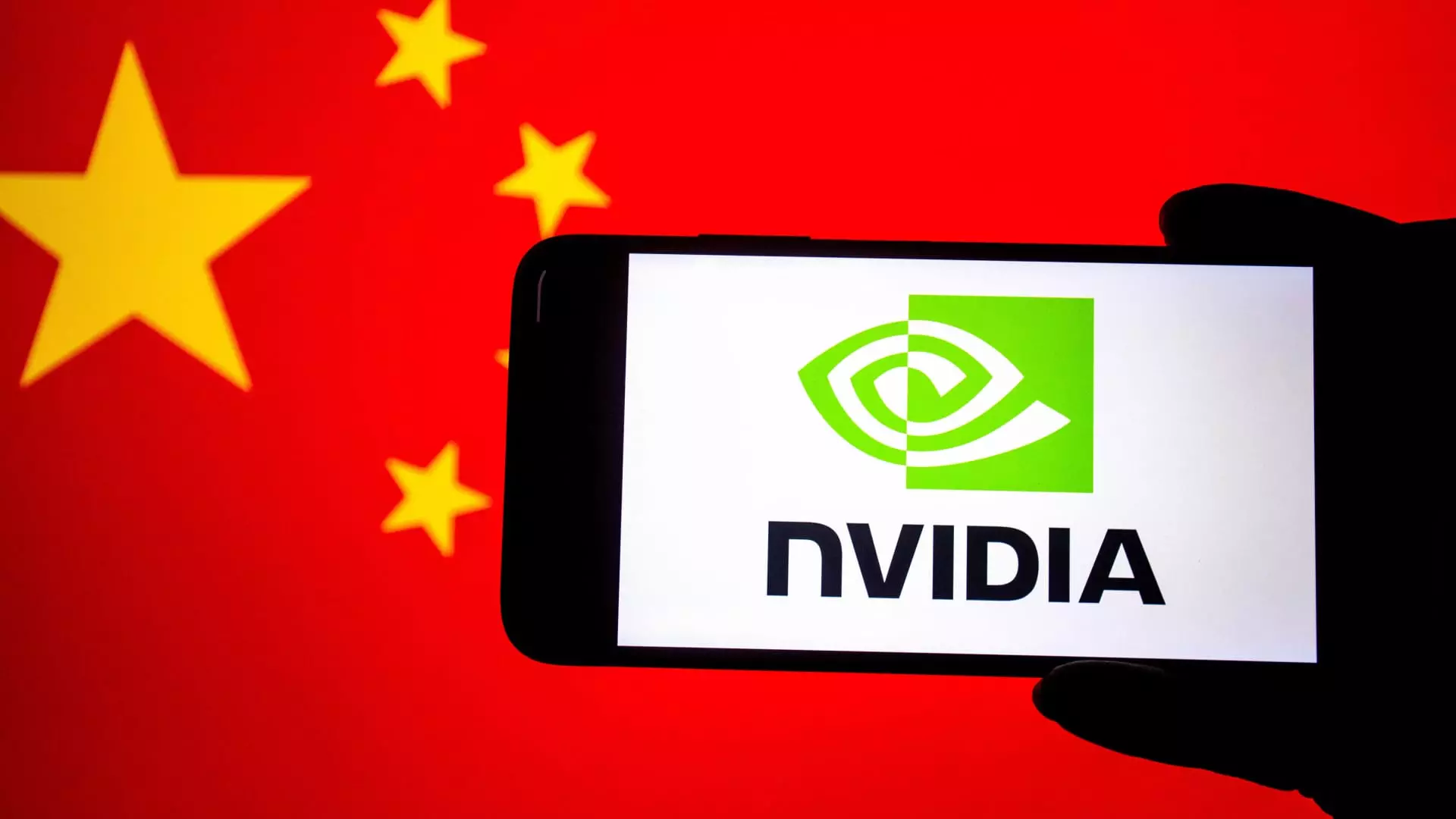In the ever-evolving landscape of technology and finance, the stock market continually reacts to innovations and emerging competitors in the tech sector. Recently, a notable incident involving the artificial intelligence (AI) field saw major shifts in premarket trading as notable companies faced severe stock price fluctuations. The focus of this upheaval revolves around Nvidia, a leading player in AI hardware, whose shares experienced a staggering decline. This downturn was spurred by the unveiling of DeepSeek, a Chinese startup that has introduced a free, open-source large-language model, developed in a remarkably short time and at a remarkably low cost.
Impact of DeepSeek on Nvidia
Nvidia has long been regarded as a titan in the AI space, supplying critical hardware that powers AI applications across multiple sectors. However, the entrance of DeepSeek has instigated concerns about the viability of Nvidia’s high-performance chips. The revelation of DeepSeek’s cost-effective alternative marked a pivotal moment in AI, raising questions regarding whether such investments in Nvidia’s technology would still be justified amid competing innovations. Investors reacted swiftly, pushing Nvidia shares down more than 11% in premarket trading—a significant hit that represents the company’s most considerable single-day loss since March 2020.
Broader Market Reactions
The ramifications of DeepSeek’s introduction rippled through the market, causing other chip manufacturers to follow suit with declines. Broadcom, noted for its semiconductor products, saw its stock decrease by 12%, while AMD’s values shed 4%. Such widespread negativity among tech stocks underscores the fear of obsolescence that can swiftly grip an industry where innovation is the currency of competition.
Moreover, the giant tech companies that have poured billions into AI ventures, including Microsoft, Amazon, and Meta Platforms, also faced the repercussions of this market sentiment. Microsoft’s stock fell by 5%, while Amazon and Meta recorded drops of over 4% and 2.5%, respectively. This trend speaks to a broader skepticism among investors regarding the long-term strategies of these corporations in AI. As the market absorbs the news regarding DeepSeek, many are left to ponder whether the high investments in AI infrastructures are still sound.
The Effect on Related Industries
The declines were not limited to tech giants; companies in related sectors, such as data center services, also felt the impact. Vertiv Holdings saw a staggering 16% plunge in its stock prices. As AI investment strategies come under scrutiny, businesses that support AI infrastructures, including power providers like Constellation Energy and Vistra, likewise experienced significant losses, each dropping by at least 10%. This highlights the interconnected nature of technology investments in the economy and how a single market shift can initiate a broader downturn.
Not every company shared the same fate during this tumultuous trading session. For instance, AT&T’s stock rose 2.3% after it reported better-than-expected fourth-quarter earnings, demonstrating that positive financial reports can, in some cases, withstand overwhelming shifts in market perception. Conversely, D.R. Horton, a key player in the home-building sector, saw a slight decline due to recent downgrades, emphasizing the ongoing challenges within various industries.
As the dynamics of AI and technology continue to evolve, market players must now navigate a complicated landscape influenced by both innovation and competition. The recent boom of alternatives like DeepSeek not only challenges established giants like Nvidia but also reverberates across industries contingent on AI development. As investors process these evolving narratives, the market will likely face continued volatility, demanding adaptive strategies from companies and stakeholders alike.

